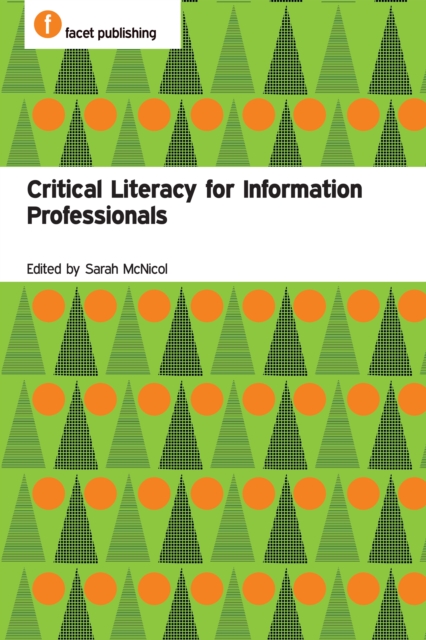
Critical Literacy for Information Professionals PDF
Edited by Sarah McNicol
Description
This edited collection explores critical literacy theory and provides practical guidance to how it can be taught and applied in libraries.
Critical literacy asks fundamental questions about our understanding of knowledge. Unlike more conventional approaches to literacy and resource evaluation, with critical literacy there is no single 'correct' way to read and respond to a text or resource. A commitment to equity and social justice sets critical literacy apart from many other types of literacy and links it to wider societal debates, such as internationalization, community cohesion and responses to disability.
The book provides a foundation of critical literacy theory, as applied to libraries; combines theory and practice to explore critical literacy in relation to different user groups, and offers practical ways to introduce critical literacy approaches in libraries.
Contributed to by international experts from across library sectors, the book covers topics including:
- radical information literacy as an approach to critical literacy education
- critical literacy and mature students
- physical and digital disability access in libraries
- teaching critical literacy skills in a multicultural, multilingual school community
- teaching media literacy
- developing critical literacy skills in an online environment
- new media and critical literacy.
Critical Literacy for Information Professionals also contains a series of practically-focussed case studies that describe tools or approaches that librarians have used to engage users in critical literacy. Drawing on examples from across library sectors including schools, public libraries, universities, workplaces and healthcare, these illustrate how critical literacy can be applied across a variety of library settings, including online and new media environments.
Accessible to those with little knowledge of critical literacy, while also introducing debates and ideas to those with more experience of the field, this book will be essential reading for librarians, information professionals and managers in all sectors, students of library and information science, school and higher education teachers and researchers.
Information
-
Download - Immediately Available
- Format:PDF
- Pages:228 pages
- Publisher:Facet Publishing
- Publication Date:31/08/2016
- Category:
- ISBN:9781783301508
Information
-
Download - Immediately Available
- Format:PDF
- Pages:228 pages
- Publisher:Facet Publishing
- Publication Date:31/08/2016
- Category:
- ISBN:9781783301508






